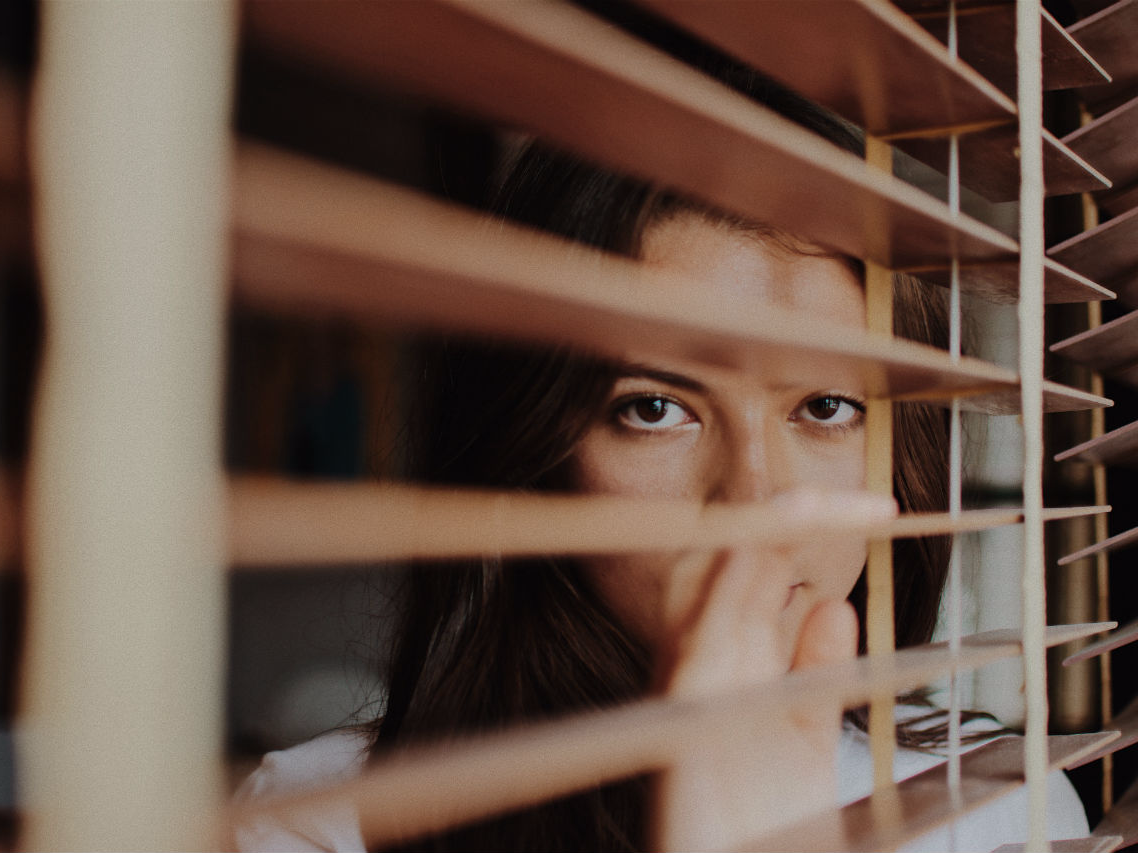- About 1.2% of the population have Obsessive Compulsive Disorder, or OCD.
- There are many misconceptions about having the condition.
- Stephen Smith, founder of nOCD, aims to help spread awareness of what it’s really like.
- The app connects people with specialists and shares information on OCD.
- nOCD currently has a community of about 80,000 people, and it’s growing.
When Stephen Smith was in his sophomore year at college, he was on the football team, and working towards a degree in Economics and Chinese. Then, something took a turn.
“I was a starting quarterback at my school, living the life, everything was going perfectly,” he told Business Insider. “Then there was a huge collapse. Basically I wasn’t able to leave my house – it was a very bad time.”
Smith was diagnosed with Obsessive Compulsive Disorder (OCD), which, according to the World Health Organization (WHO), affects about 1.2% of the population,
OCD is ranked in the top ten of the most disabling illnesses of any kind, in terms of lost earnings and diminished quality of life. But many people still don’t really know that much about it as a condition.
Smith wanted to change this, and so he set up nOCD, an app which helps people with OCD seek out experts for advice and treatment, connects them to others with the disorder, and collects their data at the same time.
In less than a year, nOCD has amassed a community of more than 80,000 people who can talk to and help each other. They can also submit information about their own diagnoses and treatments which are used for research into the condition.
"We can help make a better ecosystem for them and a better future for them," said Smith, who is very familiar with how isolating OCD can be. "Short term, we can provide content; long term, we provide knowledge to help create treatment of OCD."
There are many misconceptions about OCD, including exactly what it is and what the symptoms are.
Smith told Business Insider what it is in his own words, and what he wants people to know and understand about what it's really like to live with.
You have endless obsessive thoughts
Smith said having OCD is a bit like having a song stuck in your head, but that song creates anxiety, and never goes away.
"You have these recurring thoughts that you can't get out of your head," Smith said.
"But it's a little bit more personal than [a song]. You have these extreme fears that you can't get out of your head, so to get them out of your head you do specific actions, called compulsions. The problem is, by doing those actions, you essentially make the fear grow stronger and stronger."
The fears people experience are so severe, Smith says, it can make their chest tighten, throat close, produce dizziness. The treatment to combat this is a form of cognitive behavioural therapy, which helps people resist acting on these compulsions.
"The whole principal of OCD is you want to learn to accept uncertainty," Smith said.
"So people with OCD are often not willing to accept uncertainty... An example is somebody who fears they are going to hit someone while driving, so they start driving and getting anxious, thinking what if I hit somebody, or did I just hit somebody by accident?
"Then they will go back and check that they didn't go and run over somebody, and basically in that process they're reassuring themselves that they didn't hit someone and they're ok."
The more the person goes back to check, the more they are reassured. But that also means they are reinforcing that fear and it will come back stronger. Smith said it's like picking at a scab - you know you shouldn't, and it gets worse the more you do it, but you can't stop.
The treatment basically aims to get people to the stage that the fear doesn't bother them anymore.

It's nothing to do with cleanliness
A common misconception about OCD is that people with it like things to be clean. You might have heard people say they are "OCD" about things, because they like to have everything in order, no mess on their desks, and their kitchen is spotless.
But that's not really what OCD is about. Someone might have the specific fear that something bad will happen if they don't keep clean, and so they obsessively tidy up - although that's not something everyone with the disorder experiences.
"People with OCD have very specific fears," Smith said. "For example, someone may have the fear 'If I leave my room messy I could get sick and die.'
"So the fear is getting sick and dying, and to prevent that coming true, they are always clean. But the reality is the reason why they are cleaning is they are trying to prevent their fear from coming true."
It can take a long time to find the right treatment
Cognitive behavioural therapy for OCD works very well, with people gaining good control over their fears, and learning to not reinforce their compulsions.
But Smith says that because the condition isn't widely well understood, people aren't always pointed in the right direction.
"The problem is it can take 14 to 17 years to find an effective treatment, which is ridiculous," he said.
"The WHO ranks OCD a top-10 disorder for loss of income, because people are so crippled by it they can't work. So we think this is an incredible opportunity to help a huge section of the population worldwide."
This is why he wants people to be aware of the real symptoms. The longer someone has been suffering with the symptoms of OCD, the longer it will take for the treatment to work.
Smith said that if people can recognise the signs early, then it can be treated pretty quickly and effectively.
"If there's a great deal of awareness of OCD in society, if someone's saying 'I can't get this song out of my head and it's giving me tons of anxiety, I have incredible fear torturing me,' you better know that's OCD," he said.
It's not obvious, and people often think, 'I don't know what's wrong with you, I have no idea.'"
The goal is to get awareness of OCD to a place that is comparable to other mental health conditions which are better understood.
For example, if someone says they are feeling down all the time, or they can't get out of bed, they are fairly quickly diagnosed with depression.
"Once that awareness exists, you'll see a lot of people coming forward for treatment because they'll know where to turn," Smith said.
The wrong treatment can be very harmful
Misdiagnoses do happen, and if a patient is told to give into their compulsions instead of resisting them, that makes the anxiety escalate.
But it's not just the doctors. The families of people with OCD can also make things worse if they don't fully understand the condition.
For example, the logical thing is to find an answer if someone has a fear. If a child is scared of the dark, you can simply turn on the lights and show them there are no monsters there. But with someone with OCD, those answers will never be good enough.
"The brain isn't structured in a way that they can find answers that stick," Smith said. "It's like throwing something against the wall and it sliding down - nothing will ever stick."
Ideally, through the work of nOCD and increased awareness of OCD, the truth about it will be common knowledge.
Until then, the best thing families can do, Smith said, is help that person find an OCD specialist. There are organisations like OCD UK that can help people connect with doctors who thoroughly understand the condition.

